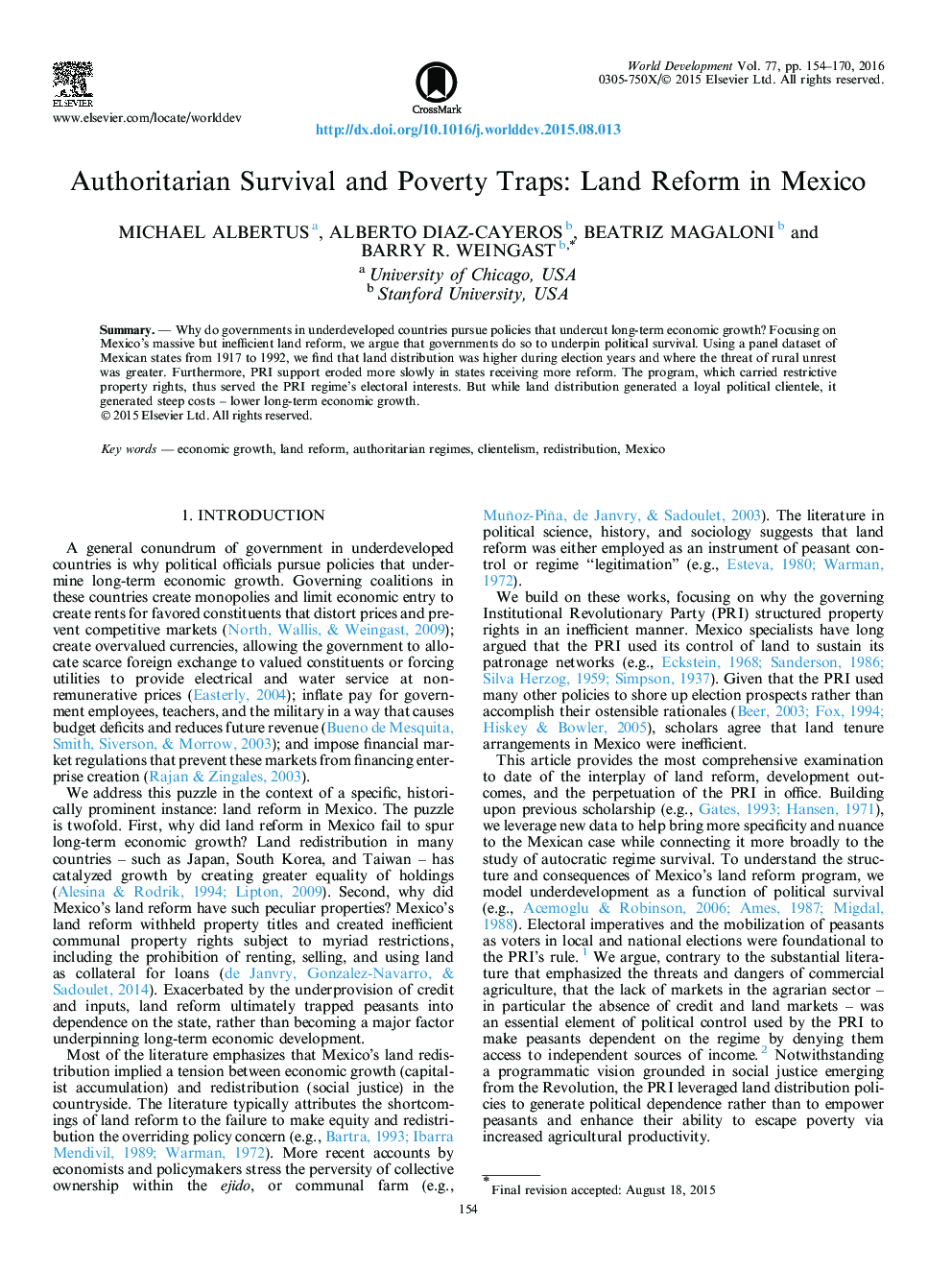| Article ID | Journal | Published Year | Pages | File Type |
|---|---|---|---|---|
| 7393113 | World Development | 2016 | 17 Pages |
Abstract
Why do governments in underdeveloped countries pursue policies that undercut long-term economic growth? Focusing on Mexico's massive but inefficient land reform, we argue that governments do so to underpin political survival. Using a panel dataset of Mexican states from 1917 to 1992, we find that land distribution was higher during election years and where the threat of rural unrest was greater. Furthermore, PRI support eroded more slowly in states receiving more reform. The program, which carried restrictive property rights, thus served the PRI regime's electoral interests. But while land distribution generated a loyal political clientele, it generated steep costs - lower long-term economic growth.
Related Topics
Social Sciences and Humanities
Economics, Econometrics and Finance
Economics and Econometrics
Authors
Michael Albertus, Alberto Diaz-Cayeros, Beatriz Magaloni, Barry R. Weingast,
